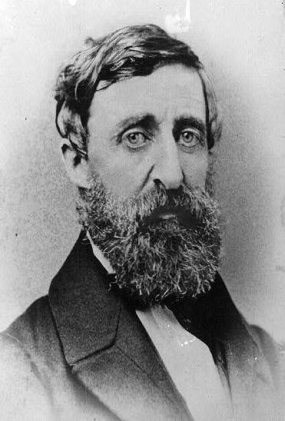
Meanwhile my beans, the length of whose rows, added together, was seven miles already planted, were impatient to be hoed, for the earliest had grown considerably before the latest were in the ground; indeed they were not easily to be put off. What was the meaning of this so steady and self-respecting, this small Herculean labor, I knew not. I came to love my rows, my beans, though so many more than I wanted. They attached me to the earth, and so I got strength like Antaeus. But why should I raise them? Only Heaven knows . . .
As I drew a still fresher soil about the rows with my hoe, I disturbed the ashes of unchronicled nations who in primeval years lived under these heavens, and their small implements of war and hunting were brought to the light of this modern day. They lay mingled with other natural stones, some of which bore the marks of having been burned by Indian fires, and some by the sun, and also bits of pottery and glass brought hither by the recent cultivators of the soil. When my hoe tinkled against the stones, that music echoed to the woods and the sky, and was an accompaniment to my labor which yielded an instant and immeasurable crop. It was no longer beans that I hoed, nor I that hoed beans; and I remembered with as much pity as pride, if I remembered at all, my acquaintances who had gone to the city to attend the oratorios.
—Henry David Thoreau, Walden; or, Life in the Woods, ch. 7: The Bean-Field (1854)


